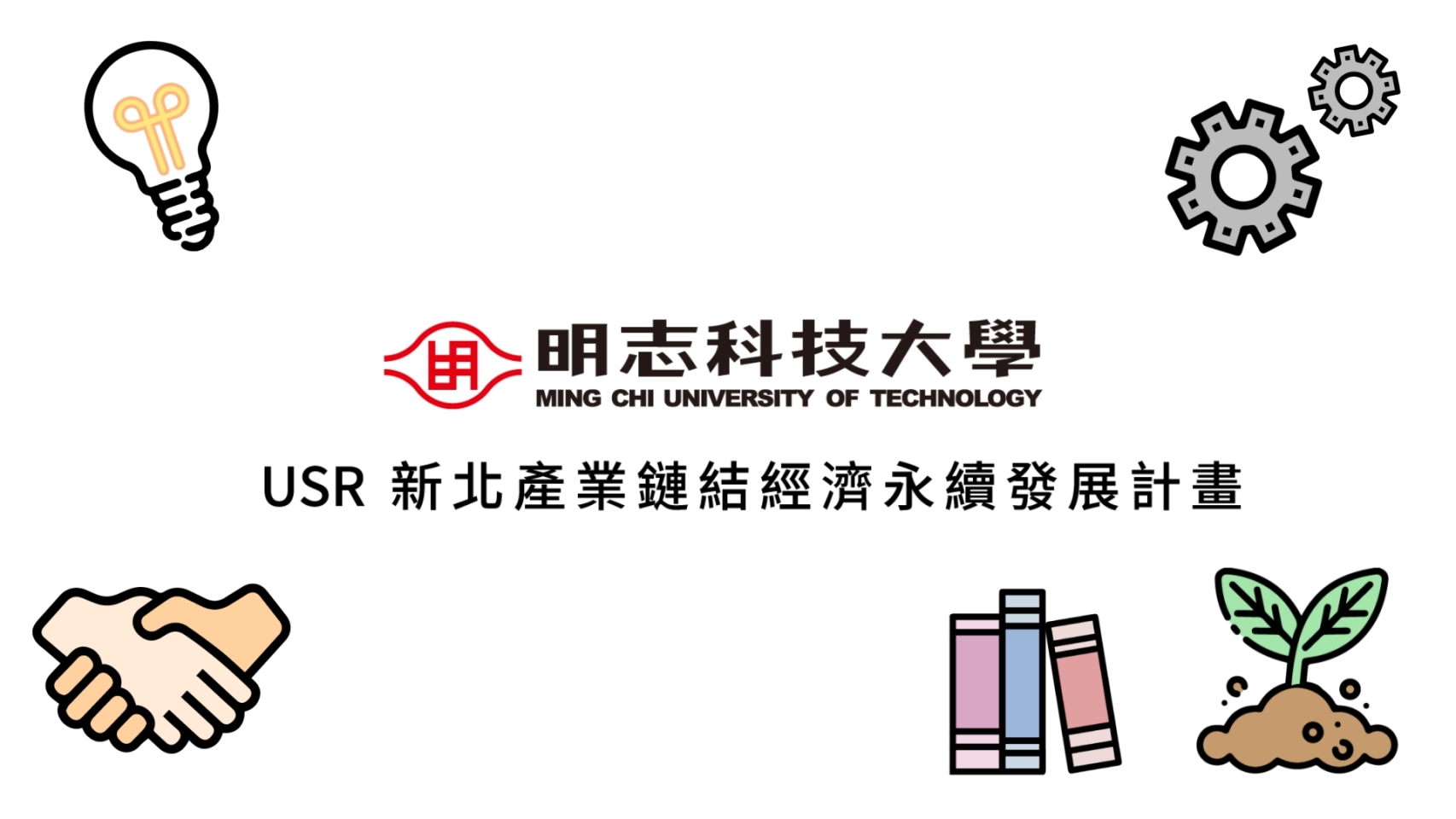Introduction
USR Expansion Project for Cooperation with Northern Taiwan Themed Cultural Centers
The third-phase initiative builds upon the foundation of the second-phase "Northern Taiwan First Academy Belt-Style Cultural Museum Action Plan." Drawing from the implementation of social design courses within the region, it includes conducting multiple community empowerment programs and intergenerational co-learning design thinking workshops. These efforts engage in dialogue with local residents to identify areas for improvement in Taishan, Xinzhuang, Wugu, and Linkou. The university aims to leverage its professional expertise to carry forward the civic educational spirit of the "Northern Taiwan First Academy" at Mingzhi Academy.
1.Academy and Community Development:A lack of cultural sustainability talent and marketing strategies.
2.Environmental Monitoring and Education:Insufficient expertise in river monitoring techniques and a lack of environmental awareness.
3.New Residents and Their Children:An urgent need to build cultural identity for new residents and their second-generation.
4.Supporting Local Industries and Migrant Workers:A shortage of professional skill training programs.
Integrating the university’s academic units, forming interdisciplinary faculty teams and research teams, gathering resources from administrative units and student organizations, and connecting public institutions, enterprises, schools, and community organizations. This approach aims to cultivate talent for various topics, foster community awareness, and create a sustainable co-learning base.
1.Academy and Community Building: Through "talent development courses," "establishing sustainable education demonstration bases," and "building local brand images," the goal is to deepen cultural identity and shape the value of cultural resources.
2.Environmental Monitoring and Education: By "training cross-basin alliance technical professionals," "developing environmental education specialty courses," and "forming cross-border environmental action alliances," we aim to promote citizen-led environmental movements and cross-sector environmental education collaboration.
3.New Immigrants and Their Children: Through "establishing new immigrant care stations," "designing multicultural courses," and "guiding new immigrants to form community organizations," we aim to cultivate diverse talents among new immigrants.
4.Supporting Local Industries and Migrant Workers: There is a lack of professional skill development courses. By offering "Mandarin courses" and "creating migrant worker lifestyle materials," we seek to strengthen the professional skills of international migrant workers.

The continuing project to enhance industry linkage for sustainable economic development in New Taipei industrial park
We together, make stronger, all for one.
New Taipei City is a major manufacturing city in Taiwan. The number of manufacturers ranks first in the country, small and medium-sized enterprises is as high as 221,000. The ratio of traditional industries is over 85%. This project integrates challenges of traditional manufacturing, including inadequate product competition, shortage of human recourse, lack of industrial links, insufficient innovation design capacity and green environment issues such as lack of awareness, through the wisdom of traditional manufacturers and high value of products, the industrial chain, enhancing weak phase by inducing stronger mechanism, to strengthen the regional economic ecological environment and achieve sustainable economic development goals. Professional teachers lead over 2392 students, provide 95 proposals of creating local prosperity. Integrate interdisciplinary, faculties, colleges and professional teams, using design thinking model to combine industry resources, promote cooperation with local manufacturers, nurture the talent needed for regional industry development, to practice the USR, and in line with SDGs, stand together, make stronger, all for one.

